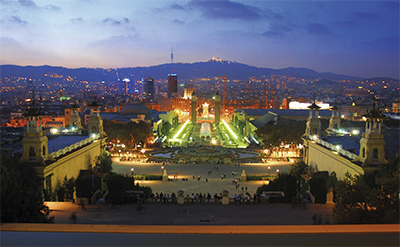Land-based casino industry prepares for BCN World behemoth as it continues to recover from effects of 2007’s financial crisis.

THE history of casinos in Spain stretches back to June of 1978 when the first democratic government elected following the death of military dictator Francisco Franco legalised gambling in order to attract tourists and dissuade its own population from travelling to nearby Portugal and France to spend their entertainment money.
The nation’s first casino, La Toja Casino, was soon opened by local operator Cirsa in the Galician port city of Pontevedra, but tight restrictions and high tax rates allied with the industry being used as somewhat of a political football seriously hindered the original aims of legalisation.
“Casinos were considered good and welcomed at the beginning because they were seen as a form of liberalism,” said Heliodoro Giner Lopez, general secretary of the Spanish Casino Association.
“Today, the Spanish population is open and liberal and, in general, there are no strong opinions against or in favour of casinos. However, the situation with politicians is different and casinos, as with other sensitive sectors, are usually used for political aims by the different parties.”
Despite high tax rates and continual political meddling, Spain’s casino industry began to grow and today there are 44 venues spread throughout the county offering poker, blackjack, dice games and punto banco as well as French and American roulette. In terms of casino hot-spots, the Canary Islands leads the way with eight venues followed by four each for the autonomous communities of Valencia, Madrid, Andalusia and Catalonia.
“Like many other nations, player demographics depend very much on location,” said Giner Lopez, who is also on the board of the European Casino Association.
“We have very tourist regions such as the Canary Islands, the Balearic Islands, Andalusia and Catalonia where you find a lot of foreigners in the casinos but there are other areas where the casinos work mainly with locals.”
Current legislation sees casinos regulated at a regional level with each of the nation’s 19 autonomous communities designating their own gambling authority with this agency also often associated with other local tax or administrative duties. All gaming licences are awarded via public tenders with their duration usually running to a decade, although this may vary with some extending to as many as 30 years.
Read the full article in the August issue of InterGaming

